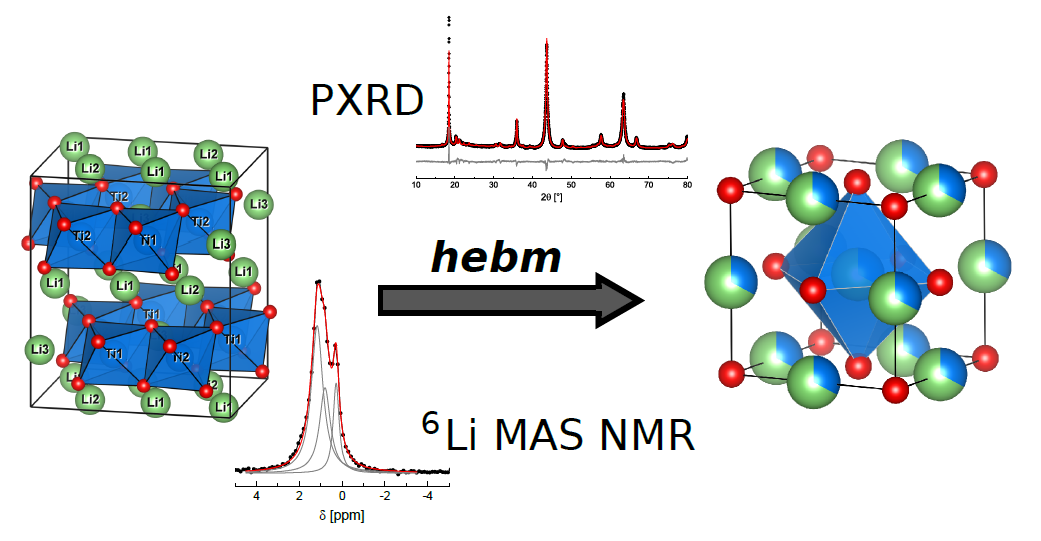Lithium titanates are used in various applications, such as anode materials for lithium intercalation (Li4Ti5O12) or breeding materials in fusion reactors (Li2TiO3). Here, we report the formation of nano-crystalline lithium titanates by a mechanochemical approach and present a deeper insight into their structural characteristics by PXRD and solid-state NMR spectroscopy. The compounds were synthesized in a high energy planetary ball mill with varying milling parameters and different grinding tools. NaCl type Li2TiO3 (α-Li2TiO3) was formed by dry milling of lithium hydroxide with titania (rutile or anatase) and by a milling induced structure transformation of monoclinic β Li2TiO3 or spinel type Li4Ti5O12. Heating of mechanochemical prepared α Li2TiO3 induces a phase transformation to the monoclinic phase similar to hydrothermal reaction products, but a higher thermal stability was observed for the mechanochemical formed product. Microstructure and crystallographic structure were characterized by PXRD via Rietveld analysis. Detailed phase analysis shows the formation of the cubic phase from the various educts. A set of two lattice parameters for α Li2TiO3 was refined, depending on the presence of OH- during the milling process. An average crystallite size of less than 15 nm was observed for the mechanochemical generated products. The local Li environment detected by 6Li SPE MAS NMR revealed Li defects in the form of tetrahedral instead of octahedral site occupation. Subsequent adjustment of the structural model for Rietveld refinement leads to better fits, supporting this interpretation.

